On July 9th 2020, in the wake of nation-wide protests over George Floyd and other Black victims of police violence, David M. Rubenstein Fellow in Governance Studies Rashawn Ray joined actor and producer Boris Kodjoe to talk about policy solutions to address systemic racism and police brutality. Below are highlights from their conversation for the Instagram podcast series #19for20, which aims to inspire public dialogue about difficult topics in social justice. You can watch the full interview here.
What is different about today’s climate compared to prior national uprisings around race?
Ray highlighted how both the visceral public display of George Floyd’s murder and COVID-19 had engulfed the nation in a manner markedly distinct from Ferguson, Black Lives Matter (BLM) and other previous nation-wide racial justice movements.
“George Floyd is the twenty first century Emmett Till, a moment similar to [his] murder in 1955 [and] by his mother having the foresight and also the bravery to show his decomposed body in that casket”, he said.
The gruesome imagery of witnessing another human being lose their life, with their neck buried under the knee of a police officer for roughly 8 minutes and 46 seconds languishes us psychologically, emotionally and physically. At the same time, with the globe and mainstream media gripped in the sweeping standstill of the pandemic, BLM took to social media, unleashing raw footage of Floyd and other Black victims to signify that they were not isolated, but were the remnants of a larger scourge of racially charged police violence rippling across the country.
Why do Black Lives continue to be devalued and over-criminalized?
Ray remarked on how the nation’s historical legacy of slavery continues to be the foundational epicenter of racial discrimination against Blacks and other minorities. “Bad apples often times come from a rotten tree. And that tree in the United States of America is rooted in systemic racism, particularly when it comes to law enforcement that has roots back to slavery”, he explained. What’s more, according to recent research, disturbing levels of white nationalism and domestic extremist groups have been shown to have infiltrated law enforcement.
Kodjoe described a personal encounter he had had with a white businessman in his own neighborhood while dressed in a hoodie and flip flops to illustrate what he referred to as “the magic pause”: how Black individuals continually internalize and deflect a series of micro-aggressions and discriminatory behavior from white individuals. The man was initially disdainful towards Kodjoe but after noticing that he owned one of the most opulent houses in the community, he sharply reversed his tone, adopting a more friendly and positive demeanor. “And that criminalization of Black people is the direct result of the lack of those muscles and the lack of consideration for the fact that I’m a father, I’m a husband, I’m a professional, I have family, I have a job,” Kodjoe emphasized.
Ray concurred, remarking that “the magic pause” also reflects the collective memory of traumatic experiences that Blacks have undergone in the past, triggering fresh waves of encounters that either did or could have ended fatally, but also revealing how a white person will attempt to code-switch according to the perceived social class of a Black person. “And I think fundamentally it highlights that we can’t outclass racism. It doesn’t matter if you’re Boris Kodjoe [and] that you have the biggest house on the street….all that matters is that in that moment, he’s seen your skin tone and his skin tone, [which gives] him the script for how to make sense of what was going on,” he added. In essence, these racial attitudes undergird and perpetuate the over-policing and dehumanization of Black people and the long-standing perceptions that they are not only one-dimensional but are more likely to engage in crime. Conversely, crime is inherently racial but there is a tendency to zero in on Black related violence. “94% of Black people kill other Blacks, 86% of white people kill other whites. But we never say white-on-white crime. It’s only talking about Black-on-Black crime,” Ray underscored.
What remedies can help shape the path forward?
1. Re-allocate and re-invest in police departments
Simply assigning more police officers to these crises will not solve the underlying issues. Further, not only is crime hovering at historic lows but existing law enforcement funds are not being utilized efficiently: Roughly 40% of homicides and 70% of robberies go unresolved and 9 out of 10 response calls handled by law enforcement stem from non-violent issues, ranging from mental health to homelessness. Defunding the police or re-assigning non-violent crimes to entities better equipped to handle these societal challenges will help to boost efficiency and augment the clearance rate for resolving violent crimes.
2. Implement accountability & transparency in law enforcement
Not only does the status quo reward police officers who ratchet up the highest quotas of tickets and arrests but taxpayers routinely foot the bill for civil payouts involving victims of police brutality and even then, the culpable officers are rarely held financially or criminally liable.
- Institute police department liability insurance: By shifting the source of funds for civilian payouts from taxpayers to police budgets, police departments will not only have a greater incentive to hold police officers accountable for misconduct but the aggrieved families will receive more just recompense for the loss of their loved ones, through the parties that are directly responsible as opposed to through their own hard-earned tax dollars.
- Create a national registry: This will allow police officers to be terminated for misconduct or if they resigned under trial for misconduct as outlined in the George Floyd Justice in Policing Act.
- Remove qualified immunity: This is a legal safeguard currently upheld by the Supreme Court which shields police officers from criminal liability and being sued financially, however, recently enacted state led reforms such as in Colorado can serve as a promising model.
3. Active civic engagement, particularly down ballot
Activism across the electoral spectrum is paramount but local politics largely determines the policies and outcomes within one’s immediate community. Rallying and electing local officials such as state representatives and attorney generals who can impact the judicial system can yield concrete pathways towards significant results.
4. Corporate America needs to embrace meaningful action, not just slogans and words
Black assets and intellectual property have been systematically disenfranchised and under-invested in and members of the C-suite and other large conglomerates have a significant role to play in not only reshaping the narrative and incentive structure around business but by also leveraging the existing resources within the Black community to drive sustainable and meaningful change. ”[We] don’t need handouts, we need real partnerships and corporate allies that are ready to invest in us,” Kodjoe reiterated.
- Invest in minority-owned small businesses. Roughly 40% of black small businesses went under because 90% didn’t receive relief funds, however, large corporates can leverage their existing sub-contracts to combat this area.
- Diversity upper management; there is a rich pool of untapped talent to be capitalized upon.
- Compensate individuals for doing the emotional work of anti-racism; they are not there to do it for free.
- Institute bi-annual surveys for minorities to capture their experiences in the workplace and promote greater equity.
- Implement reparations to close the racial wealth gap.
In essence, Black people don’t want a seat at the table, they want their own table, apportioned with equal weight and size to be acknowledged, seen, and heard across all spectrums of society. W.E.B Dubois encapsulated this enduring plight of Black individuals over a century ago as “double consciousness”, a longing to be both Black and American without having the doors of opportunity closed roughly in one’s face. And yet Blacks are still clamoring for that promise of equal justice and opportunity to be recognized as fully equal citizens in America.
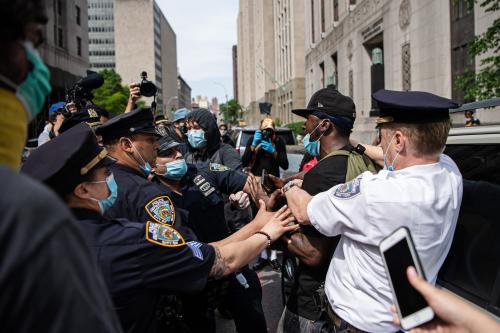
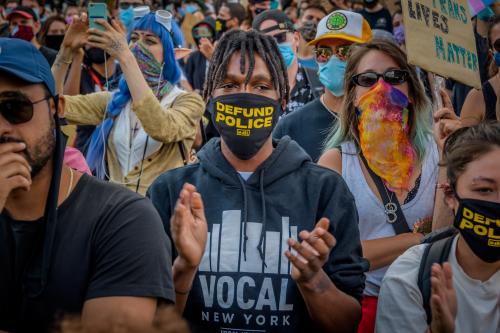
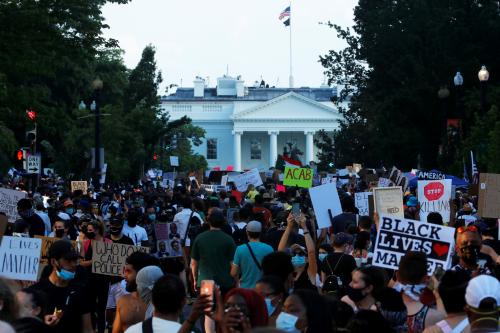
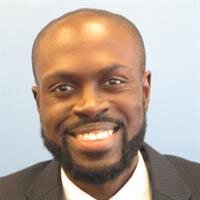
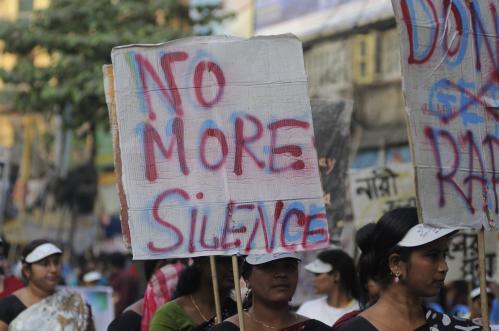
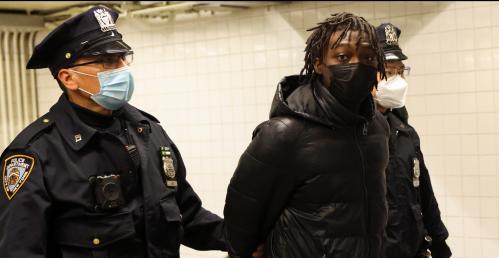

Commentary
Black people are still seeking racial justice – why and what to do about it
November 12, 2020